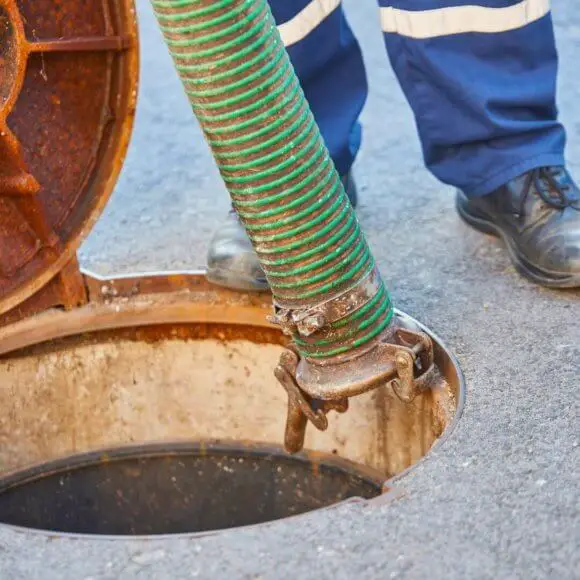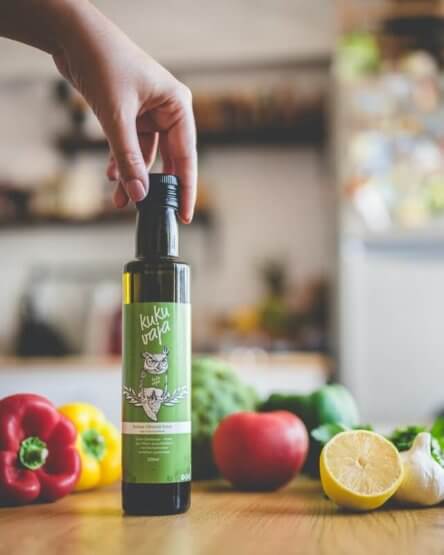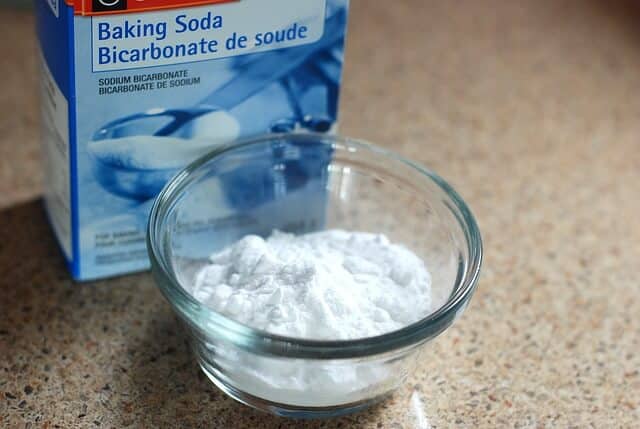This wastewater system consists of a septic tank, a soil absorption field, and a drainfield. This system allows the separation of floatable components from the wastewater. If your house has a septic system, you will need to learn various hacks to handle it. You could you some home made solutions as vinegar and baking soda. But is vinegar safe for septic systems?
This buried watertight tank helps treat sanitary water and allows solid waste to be deposited at the drainfield.
Vinegar and Septic Treatment

What is Vinegar?
Vinegar may get defined as an acetic acid aqueous solution. It also comprises trace compounds that mainly include flavoring. Vinegar contains approximately 4 to 8 percent of acetic acid. [1]
Why is Vinegar used for cleaning?
The acetic acid in vinegar solution makes it an ideal cleaning agent in the kitchen and bathroom. In addition, the acetic acid works within the wastewater system to untangle and dissolve soap scum and hard water brines. These vinegar properties make it ideal for septic tank wastewater use.
Which Vinegar gets used primarily on cleaning?
Vinegar gets much attention in our kitchens. We often use it in food dressing and when making sauces and marinades. However, Vinegar comes in many types, and the ones you see in your kitchen may not be the ones used in septic tanks. Types of Vinegar include:
So, what are the different types of Vinegar?
- Balsamic Vinegar- this Vinegar gets widely used for food drizzling and dipping
- Distilled white Vinegar- used for cleaning and DIY weed killing
- White wine vinegar- primarily used in brining, pickling, condiments, and sauces
- Red wine type- this vinegar type gets used for pickling and dressings
- Champaign- great for marinades, dressing, and sauces
- Sherry Vinegar- this type will be ideal for dips, dressings, glazes, and marinades
- Apple cider vinegar- ideal for health benefits, marinades, and pickling
- Rice vinegar- people, prefer this vinegar type for sauces
- Malt vinegar- we will pick this Vinegar for dips, marinades, and sauces
- Black Vinegar- you will mostly find this Vinegar in food dips, dressings, and braises
As per this list, it will be evident that the distilled white Vinegar will be our septic vinegar product. This usage will be because this Vinegar gets produced by distilling Vinegar using steam heat. This process kills all the nutrients in the Vinegar and burns the liquid forming pure acetic acid. Therefore, this white vinegar product will go down your drainage to the septic tanks.
So, is Vinegar safe for septic systems?

To answer this question most simply and perfectly, let’s look at the benefits of using white Vinegar in your drains and septic system.
Vinegar will dissolve the sticky buildups.
Do you know those sticky buildups in your kitchen and bathroom drainage system will ultimately cause your pipe clogging? When oils and other waste bi-products react in the drainage system, they may result in these sticky buildups.
In the long run, your pipes block. When you use White Vinegar in your sinks and toilet, it will help dissolve these sticky substances clearing your drainage system.
Vinegar dissolves soap scum.
When we shower, a mixture of hair and soap scum might be the most dangerous thing when they go down the drain. These combine and form a blockage that may affect the whole sewer system. Vinegar will help entangle and dissolve this mess to let your drain wastewater flow freely.
Vinegar dissolves most drainage dirt.
Some dirt in the sewer system may dissolve well in a white vinegar solution. So, instead of waiting for it to clog your drainage pipe, you may use Vinegar and keep them clog-free. PVC, CPVC, and PEX pipes may not freeze, but scum, oil residues, and dirt may form the most difficult clogs resulting in destructive sewer blockages.
Vinegar prevents mold formation.
Mold leads to causing most of the blockages in our drainage system. Mold tends to grow on the moist areas of our kitchen and bathrooms floor. When washed in the drainage system, they easily combine with other waste material and end up causing major sewer line blockages. Vinegar helps prevent mold growth and helps dissolve waste resulting in a smooth sewer line flow.
Vinegar helps kill the harmful bacteria in the septic tank.
Have you heard of good and bad bacteria? Good bacteria don’t pose any threat to your drainage and septic system. This reaction is because most chemicals we use in our toilets and bathrooms kill germs, and these good bacteria that, when they get to our fields, cause no tremendous damage to the soil.
Therefore, Vinegar deals with harmful bacteria and by the time it gets to the septic tank, waste fields have no adverse effect.
How do you use Vinegar for adequate drainage and treatment of septic tanks?

Now that we have confirmed that Vinegar will be safe on septic tanks, you might wonder how to use it. First, you will pour a cup of White Vinegar down the drains through the sinks and shower drainage areas for effective results.
Let it stay undisturbed for at least 30 minutes, and then flush with clean water. Repeat this procedure once weekly and you will be good to go. The Vinegar will clear weekly buildup scum, oil deposits, and dirt down the drainage system to the septic tank area. This way, the wastewater will get there for more treatment and separation of waste.
- Is baking soda and Vinegar safe for the septic system?
We have talked in detail about the essence of Vinegar in the septic system. Now, let’s look at the baking soda scenario.
- So, is baking soda good for the septic system?
Baking soda will bring about the following advantages to your septic system.
- It helps preserve the good bacteria in your septic system
There exist good bacteria in your septic system that help breakdown your wastewater. Without these good bacteria, septic wastewater may be harmful to the environment. Baking soda doesn’t interfere with the bacteria, which boosts its existence.
- Baking soda helps keep away odor
We all know that the drainage and septic systems may produce a foul odor, especially with clogging cases. Baking soda helps keep the odor away as vinegar works to help prevent clogging. So if you regularly use baking soda in your septic system, your home will never experience the odor associated with non-baking soda application.
- Baking soda helps prevent pipe clogging
The good bacteria in drainage and septic systems help prevent clogging by breaking down waste material that goes thru the systems. Since baking soda doesn’t interfere with these bacteria, the bacteria processes go on as required. Hence, there will be no clogging. [2]
Baking soda doesn’t harm the environment.
Baking soda and Vinegar contain natural ingredients. The two products contain no toxins, and if they end up in the environment, they prove environmentally friendly. You will cause no adverse effects by using baking soda in your septic system.
How to use baking soda

For effective results, we will help you develop a unique baking soda cleaning agent. Follow through the following steps.
- Measure ¼ cup of baking soda
- Add into the powder ½ cup of distilled white Vinegar
- Add two tablespoons of lemon into the fizzing Vinegar and baking soda solution
- Pour this solution into your sinks, toilets, and shower outlets
- Flash with clean water after 30 minutes
- Let the mixture go through your drains to the septic tank
This homemade cleaning agent will give you the freshest and clean drainage and septic system.
Does vinegar damage septic systems?
Distilled white Vinegar has no damaging properties to either septic or drainage systems. On the contrary, it comes with many benefits. These cleaning benefits include:
- It helps in unclogging plastic and other pipes
- It helps keep the septic system odor free
- It boosts the existence of good septic bacteria
- It dissolves oil substances in the drainage system keeping them clean
Final Thoughts
Are you considering using Vinegar and baking soda in your septic system? Go ahead and use these kitchen products without fear. They will be beneficial in your septic system wastewater treatment.
They will destroy the harmful bacteria and facilitate the existence of the good ones.
Your septic area will get an odorless fragrance too. You will enjoy the benefits of using Vinegar and baking soda on your septic tank.

Michael Davis is a heating & plumbing expert who currently works as independent contractor in SC. He also writes for Plumbertip.
For almost 10 years he worked on various plumbing tasks across South Carolina.


